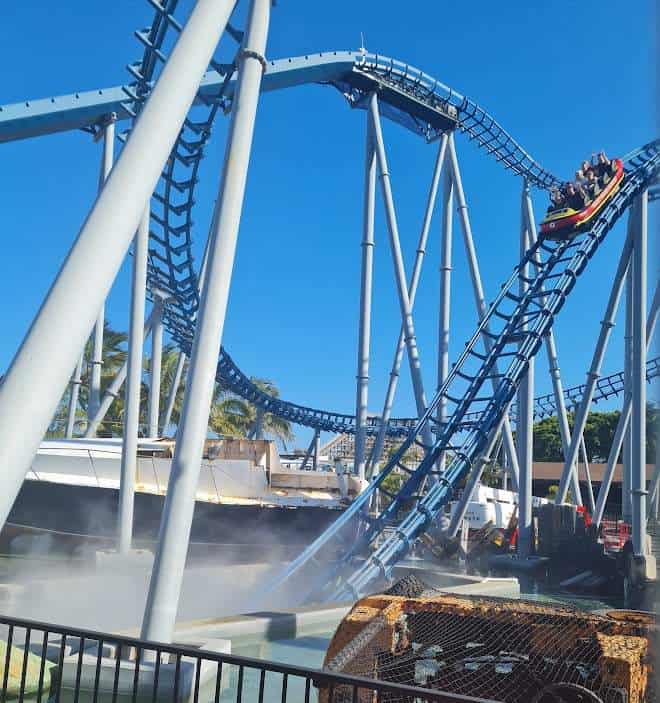Traveling is known to improve mood and reduce stress because it allows people to rest from activities they associate with stress and anxiety. However, because of traveler’s depression, people often may experience low moods and anxiety despite being on a trip of a lifetime.
What exactly is travelers’ depression? This article will tell you everything you need to know and more!
Travelers’ depression refers to low mood, loss of interest, low energy, anxiety, and other symptoms of depression that people often experience when they are on a vacation that is supposed to make them feel amazing.
You read that right! Being on a trip of a lifetime does not automatically protect one from having feelings of depression. But how real is traveler’s depression, what causes it, and how do you prevent or overcome it? Read on to find out!
Is Traveler’s Depression Real?
Travelers’ depression is a real and very common downside of traveling away from home and spending time in a travel destination.
When traveling is marked on their calendar, people dream of the good time they will have – the soothing relaxation, the thrilling adventures, the awesome sights, etc. The focus on the positives causes high excitement.
Many people never expect to feel down and experience mild depression while on their vacation. However, that happens very often. The traveling blues can hit you immediately when you arrive at your travel destination or when you’re deep into your vacation, there is no one set time for it.
The mild depression that people can experience when on the road usually comes with the following symptoms :
- Low mood
- Sadness
- Loss of interest
- Low energy or increased fatigue
- Sleeping problems (trouble sleeping or sleeping too much)
- Anxiety
- Frustration
- Fits of anger

What Causes Traveler’s Depression?
There are many factors that cause a traveler’s depression. Some of these are:
- Unrealistic expectations
- Loneliness
- Doing too much
- Exhaustion
- Sickness
- Homesickness
- Problems with traveling partners
- Something going wrong
- Money worries
- Social pressure
1. Having Unrealistic Expectations
One of the most popular causes of traveler’s depression is having unrealistic expectations.
When looking forward to a travel vacation, we naturally romanticize the upcoming experience. Your day and night dreams are filled with your expectations of the upcoming experience – blissfully hot beaches, awe-inspiring landscapes, luxurious accommodations, etc.
However, when you arrive at the destination and the reality is far from what you had expected, your excitement takes a nose-dive, leading to feeling down, uninterested or maybe even frustrated.
2. Loneliness
Feelings of loneliness during a trip can also lead to this. Your body or mind longs for connection. Because humans are wired to connect if the body or mind longs for it but does not find it, sadness and other symptoms of depression set in.
During a trip, many situations can cause your body or mind to long for attachment, making you feel lonely, and bringing on depression. Such situations are more likely to occur if you travel solo and do not have others to share the experiences with. It’s worse if you are unfamiliar with the local language.
Imagine being in a romantic luxury resort alone and seeing loved-up couples all around you, your exciting vacation can easily become a sad one. On top of which you may not even be able to eavesdrop on other people’s experiences due to the language barrier, that’s just upsetting!

3. Doing Too Much Or Overstaying Your Vacation
Traveling and engaging in vacation activities can be exciting and satisfying. Interestingly, the satisfaction derived from vacationing rises, peaks, and declines following the law of diminishing marginal utility.
The law explained that as you consume more and more of a service, the total satisfaction you derive increases progressively, peaks, and starts declining.
When vacationing, the excitement is high when you begin your trip, and rises steadily as you reach your destination and engage in vacation activities. However, if you do too much or stay too long, a point is reached where vacation activities become less exciting, or even stressful.
Then, you’ll greet further activities with lower energy, which can quickly turn into frustration and other symptoms of traveler’s depression.
4. Exhaustion
Vacationing should be an escape from the physical and mental exhaustion of your regular routine. Instead, some vacation activities can drain you physically and mentally.
This can be the case if you plan a very short vacation to escape a very hectic life, but you arrange an adventure-themed or survivalist-themed vacation instead of a relaxation-themed one. Traveling to very far destinations and doing too much while you’re there can take their toll on your body.
Exhaustion causes physical symptoms like fatigue, muscle heaviness, and headaches. Most often than not, low energy follows, making vacation activities be less exciting because you are not getting the high levels of enjoyment you dreamt of. Sadness may creep in, leading to depression.

5. Sickness
Falling sick when on a vacation can also be the reason. It doesn’t matter whether you are admitted into a hospital, confined to your room, or can still participate in activities. When you are sick, what is happening to your body will affect your mood.
6. Homesickness
When planning a vacation, you often cannot wait for the day to come so that you can jet off. However, many vacationers start to miss home soon after leaving, and cannot wait to return home.
Homesickness is the feeling of emotional distress when you are away from home and are in an unfamiliar environment. Homesickness causes you to miss home so much that all you want is to cut the vacation short and return home. If you force yourself on, you’ll lose interest in vacation activities, and they become less pleasurable and even annoying.

7. Problems With Traveling Partners
Traveling with others can help make vacation less lonely, but it also means compromising a lot and tending to the wishes and needs of others.
If your traveling partners constantly try to involve you in things that do not interest you, the vacation will become a chore for you. You could also clash with your traveling partners, causing more anger and sadness. The strain on your relationship will cause you sadness, leading to traveler’s depression.
8. Something Going Wrong
Many things can go wrong when you are on a vacation. These include losing your luggage, getting lost yourself, getting mugged, having terrible tour guides, etc. An unfortunate unexpected occurrence can lead to traveler’s depression as it will dampen your mood, and cause you to lose interest in vacation activities.
9. Money Worries
Most often than not, the actual cost of traveling exceeds budgeted costs. Things may be more expensive than you had expected, or you may make expenses that you did not plan for, causing you to spend more than planned.
There is a link between money and mental health, as money issues can make you anxious, worried, and down.
10. Social Pressure
Social media helps people find and connect with each other. However, the new technology can make one feel lonely and exacerbate issues like anxiety and depression. Social media causes depression because it can make you feel inadequate about your experiences.
For example, the vacation images and videos that people post on social media are often heavily inflated – they may be outrightly photoshopped or just a few high points of a drab vacation. However, these images may make you have unrealistic expectations, and when your vacation does not meet those social media-informed expectations, feelings of dissatisfaction creep in.

How To Prevent Traveler’s Depression
There are steps you can take to prevent traveler’s depression from occurring during your trip or to overcome it if it occurs. Some of these steps are:
- Set realistic expectations
- Plan for certain scenarios
- Avoid tight budgets and include contingencies
- Actively fight loneliness
- Rest properly and take care of yourself
- Practice meditation
- Don’t define your vacation by social media posts
1. Set Realistic Expectations
Do not over-romanticize the upcoming experience. Also, what you know about the destination should not be limited to what is in the promotional content of the place or manipulative social media posts about the place.
Rather, do thorough research, read real vacationers’ experiences in discussion forums, check reviews, and speak to friends who have visited the place.
2. Plan For Certain Scenarios
Mental preparedness is one of the best ways to prevent travelers’ depression. For example:
- “What if I run out of money?” – Look for a relative or friend that you can easily contact for money assistance should you need it.
- “What if I get lost?” – Plan to always go out with a paper guidebook or map (not just a digital map because your phone battery could run out).
When you’re mentally prepared, it would not be too shocking if something does go wrong during your vacation. Even if the occurrence is something you had not planned for, mental preparedness will make you calmer as you find a solution.
3. Avoid Tight Budgets And Include Contingencies
When budgeting for your travel, making a tight budget is a recipe for having money problems. Thus, to avoid money-related traveler’s depression, avoid making tight budgets. Don’t severely limit the amount of money that you will spend. Rather, be generous with your planned expenses, and also budget for contingencies.

4. Actively Fight Loneliness
You should consider traveling with others. If you’d rather travel alone, you need to come out of your shell, meet people, and make friends. Some ways to meet people when traveling solo include:
- Using public means of transportation (like buses) instead of taxis or car rentals
- Taking group tours instead of private tours
- Staying in a dorm or hostel instead of a hotel
- Get involved in group activities like Zumba classes or Tennis/Golf.
5. Rest Properly And Take Care Of Yourself
A long road trip can be exhausting as a long flight can cause jet lag. So, when you arrive at your destination, instead of diving straight into activities, take some time to rest and recover.
Don’t do too much when vacationing. Also, get enough sleep, eat nutritious food, hydrate properly, and don’t take too much alcohol. These can fight off exhaustion and sickness.
6. Practice Mindful Meditation
Mindfulness meditation can help reduce anxiety, frustration and other traveler’s depression symptoms. Meditation is based on relaxation and breathing techniques. It is the mental training that teaches you how to slow down racing thoughts, free yourself of negativity, and calm both your body and mind.
7. Don’t Define Your Vacation By Social Media Posts
See social media posts for what they truly are – a far stretch from reality. That way, you will not use what people post on social media as the yardstick to measure your vacation experience. Escape being dissatisfied with your vacation and the sadness that comes from thinking that others are having more fun.

FAQs
Is Traveler’s Depression The Same Thing As Post-Travel Depression?
Travelers’ depression refers to symptoms of mild depression that you experience during a trip, while post-travel depression refers to symptoms of mild depression that you experience when you return from a trip because of coming back to your normal life (that you perceive as exhausting or stressful).
How Long Does Post-Travel Depression Last?
The low mood that hits you at the end of a trip can last weeks or even months. The longer and more enjoyable your vacation was, the longer it’ll take to return to normal again.
How Can Travel Affect Your Mental Health?
Travel can spark mood changes. The excitement of an upcoming trip and the thrills of vacation activities can be uplifting. However, when things go wrong or expectations are not met, the vacation high can be replaced with low mood, anxiety, and other symptoms of mild depression.
Final Thoughts
Travelers’ depression is a very common issue that can creep in to steal your joy. Hopefully, our article has armed you with tools to prevent and overcome it. Enjoy your vacation!
Resource Links To Products We Use And Recommend
Sources
[1] – Mayo Clinic
[2] – PsychCentralral
[3] – YourArticleLibrary
[4] – medicine.org
[5] – Webmd
[6] – Mind.org
[7] – Help Guide
[8] – Very Well Mind
More Pages On Other Areas
These small jetties provide opportunities for various recreational activities, such as fishing, photography, and taking leisurely strolls to enjoy the bay's natural beauty. They are also great places...
Just opened on August the 25th 2023 in Hervey Bay is the new Golfing attraction offering 18 holes of fun for all ages! They offer the locals something new to do in Hervey Bay! Mini Golf Hervey Bay...


